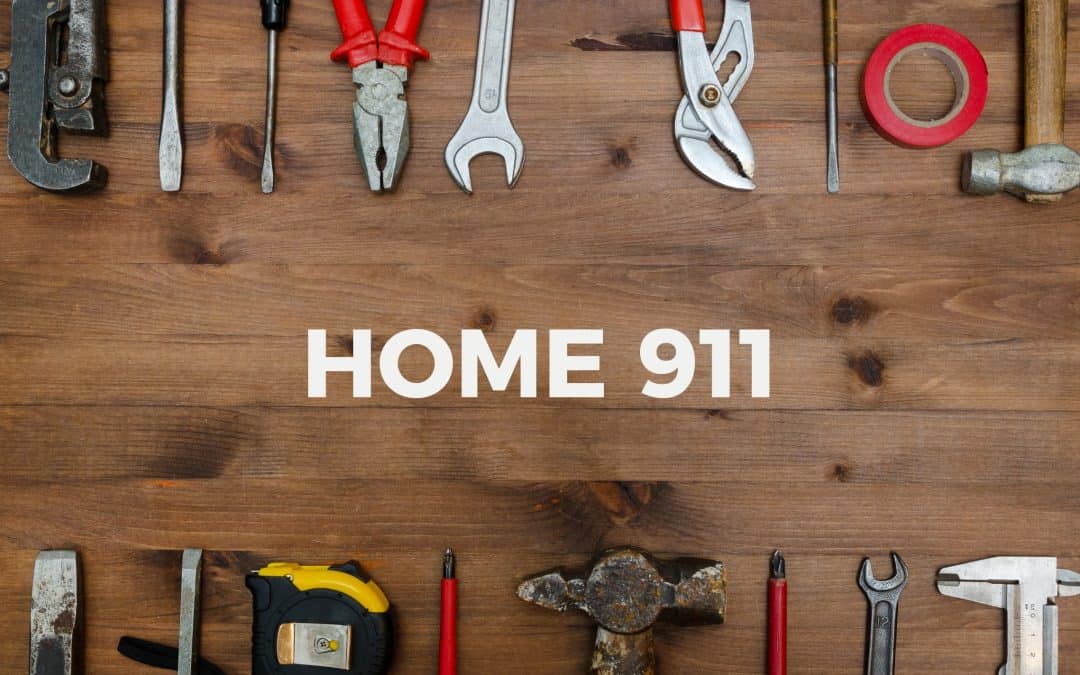Home emergencies happen when we least expect them. Knowing how to handle them can save you time, money, and a lot of stress. In this Home 911 guide, we’ll talk about some of the most common household emergencies, from electrical issues to drainage problems, and provide tips on how to be prepared. With the right knowledge, you can act quickly and efficiently, minimizing damage and making your home safer. Let’s break down what you need to know.
Electrical Emergencies
Electricity powers our daily lives, but electrical problems can become a major safety hazard. When you experience flickering lights, frequent circuit breaker trips, or burning smells coming from outlets, it’s time to call in professional help. Knowing what to do during an electrical emergency is crucial. First, if possible, turn off the power to prevent further damage. Then, contact a licensed electrician.
In Home 911 situations involving electrical issues, preparation includes regular maintenance. Keep an eye on your wiring, and if your home is older, it might be time for an upgrade. Always have the contact information of a reliable electrician on hand to save time during an emergency.
Plumbing Problems
Leaky pipes, clogged drains, or a faulty water heater can quickly lead to costly repairs if not addressed right away. When you have a burst pipe or major drainage problem, shutting off the main water valve is the first step in Home 911 plumbing situations. This will prevent further water damage.
Drainage issues, especially in basements, can lead to flooding. Ensuring your basement has a proper drainage system or a sump pump will help avoid catastrophic water damage. Regularly check your pipes for leaks and address small problems before they escalate into full-blown emergencies.
Roofing Issues
A leaky roof during a storm can cause immediate damage to your ceilings, walls, and even furniture. If you experience a roofing emergency, your first step is to minimize water damage by using buckets to collect leaking water. Next, cover the affected area with a tarp to prevent further leaks until a professional roofer can fix it.
To prevent Home 911 roofing issues, maintain your roof regularly. Check for damaged shingles and address any signs of wear and tear. It’s much easier to prevent leaks than to deal with an emergency during heavy rain.
Basement Flooding
Basements can flood for a variety of reasons, such as heavy rain, improper drainage, or burst pipes. A flooded basement can damage your home’s foundation and lead to mold growth if not handled properly. The best way to deal with basement flooding is to act quickly.
If your basement starts flooding, shut off your electricity to avoid electrocution. Then, use a wet-dry vacuum to remove the water, or call a professional water removal service. Preparing for this Home 911 scenario means making sure your basement has a sump pump installed. Additionally, check that gutters and downspouts direct water away from your home.
Appliance Failures
Appliances like refrigerators, washing machines, and HVAC systems are essential to our daily comfort. When they stop working, it can feel like a crisis. However, not all appliance failures require immediate professional attention. For smaller issues like a washing machine not draining, you might be able to troubleshoot the problem yourself.
In Home 911 scenarios involving major appliances, knowing how to shut off the power to the appliance is critical to prevent further damage. It’s a good idea to have an emergency fund to cover unexpected appliance repairs, as these can often happen without warning.
Gas Leaks
A gas leak is one of the most dangerous emergencies you can face at home. If you smell gas, leave your home immediately and call your gas company or emergency services. Gas leaks can lead to explosions if not handled quickly and properly.
In Home 911 gas leak situations, do not turn on any lights, appliances, or electronics, as they can ignite the gas. Ensure your home has a working carbon monoxide detector to alert you of potential leaks. Always take gas leaks seriously and get professional help right away.
HVAC Emergencies
Losing your heating or cooling system during extreme weather conditions can quickly become an emergency. In cold weather, a broken furnace can lead to frozen pipes and water damage. In hot weather, no air conditioning can make your home unbearable.
For Home 911 HVAC emergencies, contact an HVAC professional as soon as you notice your system malfunctioning. Regular maintenance, like changing filters and having annual inspections, will help prevent major issues. Keeping your system in good working condition can save you from an unexpected breakdown.
Being Prepared for Home Emergencies
The best way to handle a home emergency is to be prepared. Keep an emergency contact list of local service providers such as electricians, plumbers, and HVAC professionals. Know where your main water shut-off valve and electrical panel are located. Create an emergency plan with your family so everyone knows what to do during a Home 911 situation.
Additionally, having an emergency fund specifically for home repairs will help ease the stress of paying for unexpected problems. Many home emergencies can be prevented with routine maintenance, so stay proactive about caring for your home.
Final Words
No one likes to think about emergencies happening at home, but being prepared can make all the difference. Home 911 situations come in many forms, from plumbing problems to electrical failures, and knowing how to handle them can minimize damage and keep your home safe. By taking preventative steps and having a plan in place, you can tackle these emergencies head-on and avoid unnecessary stress.
